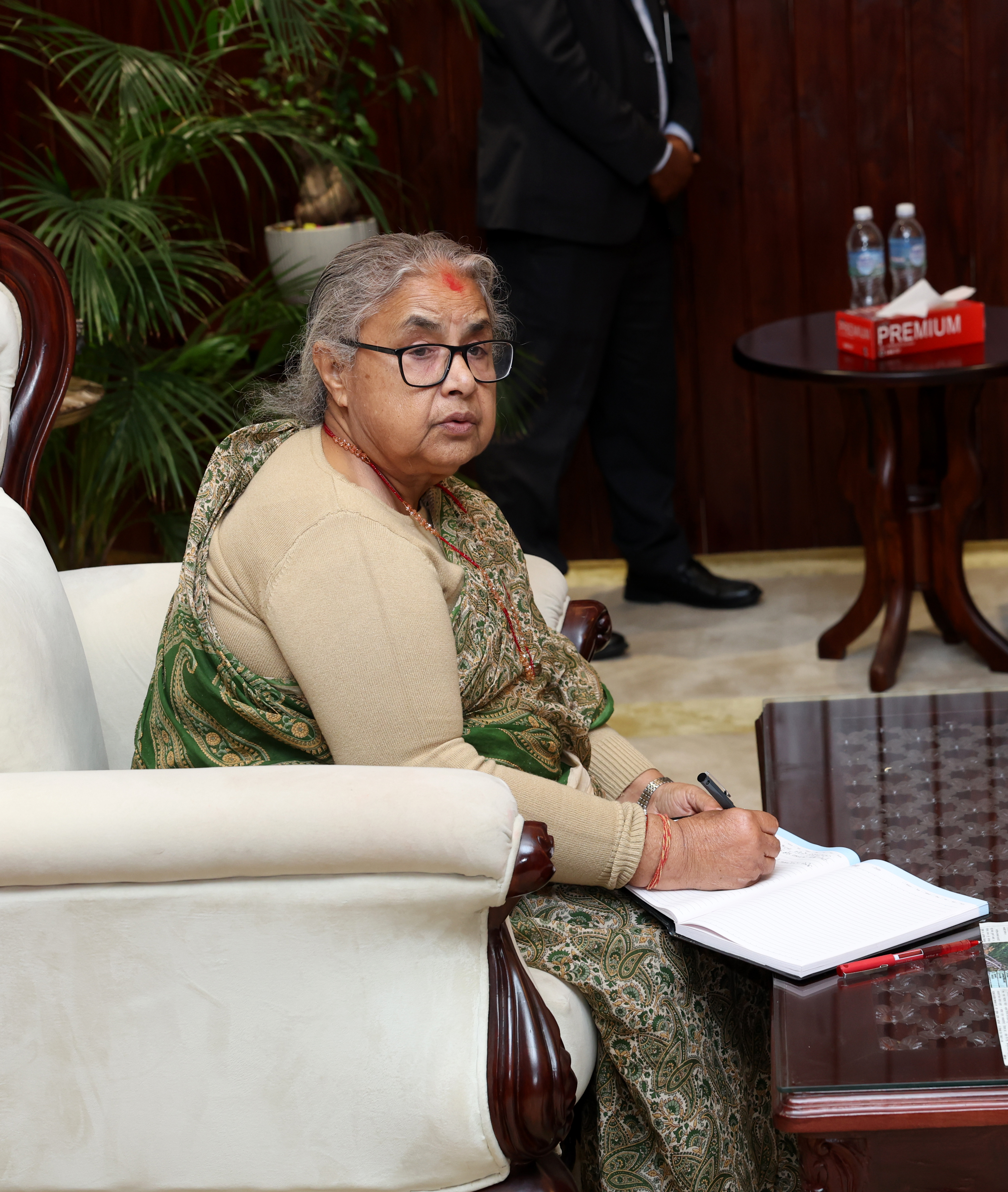Politics
Broad agreement for timely polls emerges in tripartite talks
UML was the only holdout at Wednesday meeting between government, Gen Z representatives and political parties.
Anil Giri
The first ever meeting between the government, political parties and Gen Z leaders held at the prime minister’s residence in Baluwatar on Wednesday centered on the elections scheduled for March 5 next year.
According to participants, matters related to developments following the September 8-9 youth revolt, scrapping of the constitution and voting rights of Nepalis living abroad were also discussed.
Except for the CPN-UML, representatives of the seven other political parties were unanimous that there is no alternative to snap elections. The other parties represented in the dissolved House of Representatives voiced their commitment to the polls.
While leaving the meeting on Wednesday evening, CPN (Unified Socialist) Vice-chairman Rajendra Pandey said that all the parties except the UML, led by erstwhile prime minister KP Sharma Oli, were one on holding timely elections.
According to him, the UML remains firm on its stance of Parliament reinstatement. The demands of Gen Z can be met only through the restoration of the dissolved House, the party insisted. UML leaders Mahesh Bartaula and Chhitiz Thebe, who attended the consultation, said at the meeting that the House dissolution was unconstitutional and a wrong political move. The UML leaders were also not assured of security during the elections.
According to Pandey, the Gen Z representatives expressed their support for the current constitution and political system. “The Gen Z leaders also asked us to take part in the elections,” he said.
There were suspicions between the political parties and Gen Z following the September uprising and the declaration of elections.
In the meeting, all political party leaders committed to elections, said Jagadish Kharel, the minister for communication and information technology, who is also the government spokesman.
Nepali Congress representatives said their party is committed to the elections but raised concerns about the security situation and whether elections are possible in the upper hills and mountainous regions in March due to cold.
Congress General Secretary Gagan Thapa told the meeting that his party is in favour of elections. But he questioned whether it was possible to hold polls in such a short time. Representatives of the Madhesh-based parties also spoke in favour of the elections.
Most of the Gen Z representatives said that they favour elections on March 5 next year but they also want to see initiatives for corruption control, good governance and service delivery.
The Rastriya Prajatantra Party (RPP) demanded a revision in the constitution as it advocates the restoration of Hindu state and monarchy.
Gen Z leaders including Uparjun Chamling dismissed the idea.
“We are not in favour of changing the constitution,” said Chamling. “The Gen Z movement was focused on changing people’s mindset, not the constitution.”

Representatives of the political parties supported the statements of Chamling and Raksha Bam, another Gen Z leader, in support of the constitution.
From the RPP, General Secretary Rajendra Gurung and Publicity Department head Mohan Kumar Shrestha attended the meeting.
The RPP presented a seven-point proposal during the discussion.
The party representatives said that the changes sought by the Gen Z generation are not possible within the current constitutional framework and system, and that elections should happen only after a new understanding is reached between former king Gyanendra Shah, political parties, and Gen Z representatives.
Some Gen Z leaders such as Miraj Dhungana demanded elections for a directly elected executive prime minister. But his demand was dismissed by other Gen Z leaders.
“Today’s dialogue between the government, political parties, and Gen Z representatives has created new trust and positive energy,” Prime Minister Sushila Karki said. “As the challenges facing the country are common to all of us, solutions too will be found only through collective effort and continuous dialogue.
“We have succeeded in ending the state of disengagement and in building an environment of cooperation and trust. The goal of the new generation, political parties, and the government is the same—to conduct free, fair, safe, and timely elections,” she wrote on Facebook after the meeting.
Karki said that the meeting was just a beginning and the government will continue to consult political parties and Gen Z-ers in the days to come for the sake of free, fair and impartial elections.
Our shared commitment lies in controlling corruption, ensuring good governance, and maintaining transparency, said Karki. “On this foundation, we will move forward by institutionalising stability, accountability, and democratic practices.”
Sagar Dhakal, another Gen Z leader, said political parties should not be left out of the process. He called the all-party, all-stakeholder discussion ‘productive’.
“We must hold elections. There was a discussion on how to ensure security,” Dhakal said. “Along with the elections, issues related to corruption also need to be raised, and we discussed the same.”
Dhakal called for electoral reforms and arrangements for Nepalis abroad to vote. In apparent reference to the UML’s stand, he said, “Some parties are of the view that elections should not take place.”
Kharel, the government spokesperson, said that the discussion between the government, political parties, and Gen Z representatives was a positive development.
There was no dialogue between Gen Z representatives and political parties. That situation has come to an end, he said.
According to Kharel, the discussions covered elections, good governance, corruption, and the destruction of property caused during the Gen Z movement.
On the UML’s call for reinstating Parliament first, Kharel said, “It’s not that they won’t go to the elections. But they want a safe environment for the polls.”
At the meeting, Maoist Centre leader Barshaman Pun proposed a mechanism to investigate the assets of individuals who have held public office after the political changes of 1990.
The government must focus on the elections, Pun said. “If a mechanism is to be formed to investigate the assets of such individuals, we will support it.”




 11.12°C Kathmandu
11.12°C Kathmandu















